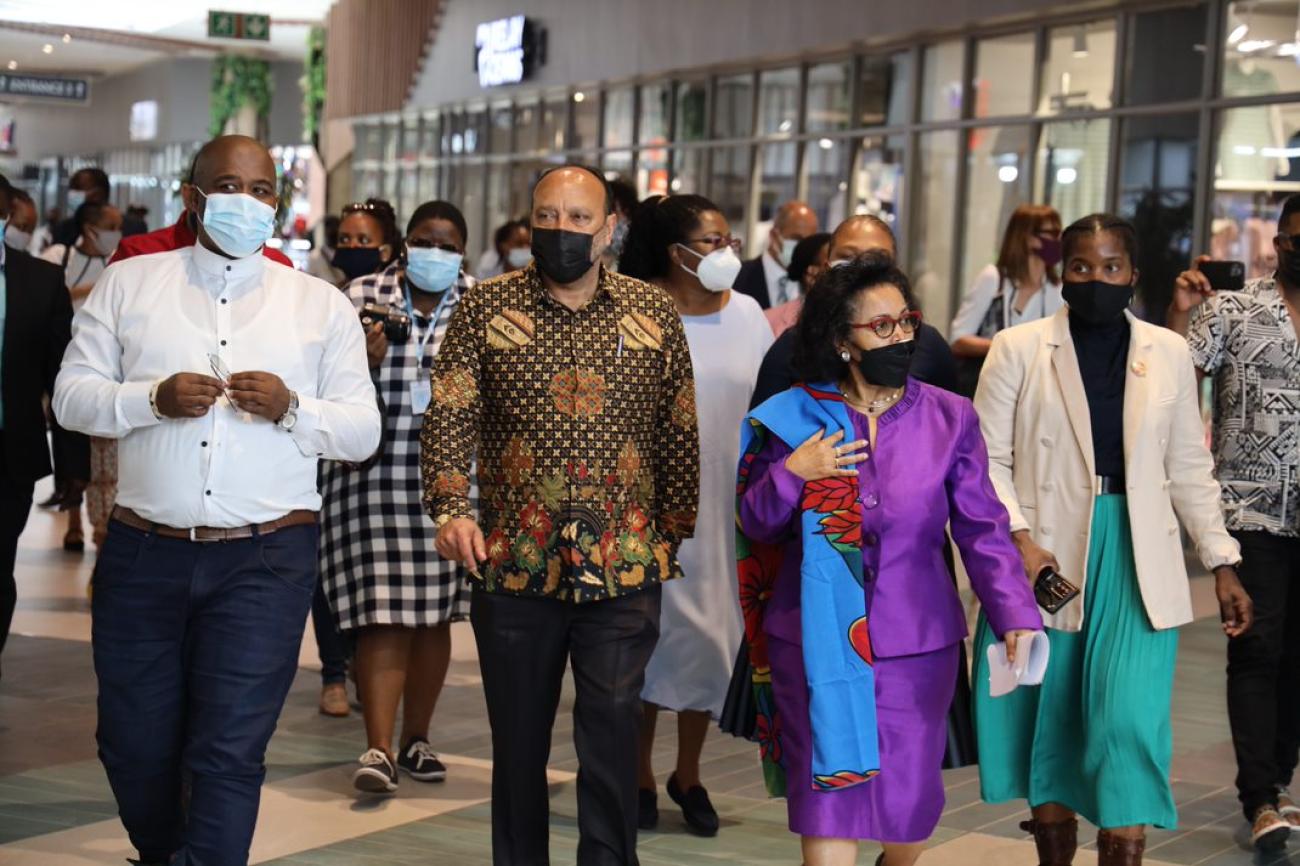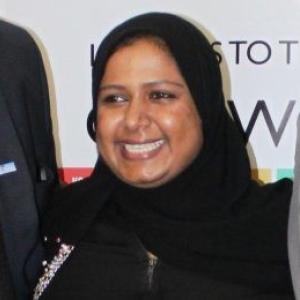“Nothing about us, without us,” was a slogan repeated by several speakers at the Disability Summit in KwaZulu-Natal Province in October this year under the theme, “Removing Barriers to Create an Inclusive and Accessible Workplace”.
A PHD student at the University of KwaZulu-Natal, Gugu Mijilo, and several other persons with disabilities shared moving testimonies of their daily struggles with workplaces and spaces that lack the necessary infrastructure to cater to their needs thus leaving many excluded at the decision-making table.
“We need to pay careful attention and listen to persons living with disabilities and produce and implement policies with them at the table, because only they know what it is like to live their lives with these challenges,” said the Resident Coordinator for the UN in South Africa, Nardos Bekele-Thomas.
The summit was one of the several events hosted by the United Nations in South Africa and the City of Ethekwini to commemorate the 76th anniversary of the UN. The UN Day marks the creation of the world’s largest global body encompassing 193 member states. This year also marked the first time the South Africa office commemorated the day outside of the Gauteng Province, which is home to 17 UN agencies operating in the country.
The decision to host the commemorative day in Durban which is under the City of Ethekwinin follows the signing of a Memorandum of Understanding (MOU) and the creation of a task force between the Provincial Government of KwaZulu-Natal and the UN in South Africa in the aftermath of the civil unrest that occurred in the province in July this year.
The UN in South Africa, as part of its support to the government through the District Development Model implementation plan, visited the province to assess the needs, challenges and areas of support where the global body could assist the province to “build back better”, which was also the theme for UN Day as the world continues to battle the Covid-19 pandemic.
The UN Day celebrations held in KwaZulu-Natal were aimed at engaging communities from across the province. They included an arts and culture infused programme with youth from Kwamashu which centred on guiding discussions around social cohesion as racial discrimination became a contributing factor in the midst of the July unrest. The youth acknowledged that they had critical roles to play in changing racial perceptions and cultural misconceptions among their peers in order to build a more integrated community.
Mental health took centre stage at the “Arts in the City” event at Jameson Park where former actress and a fire survivor, Sphesihle Masikane launched her book, “My scars were too late” detailing her experience with mental health challenges and multiple suicide attempts following the destruction of her home from a fire. The programme spotlighted local, upcoming and established visual artists to the public at a local park. The event was promoted to allow members of the public to support local artists by purchasing their products especially as the arts and culture grapples with serious lack of income due to the banning of public gatherings under Covid-19 lockdown regulations.
The city showcased its progress in protecting the environment and mitigating the impact of climate change through its water desalination programme in the suburb of Bluff. The event was also meant to demonstrate how Durban was responding to the Sustainable Development Goal No. 6 on clean water and sanitation and its various targets, including the achievement by 2030 of “universal and equitable access to safe and affordable drinking water for all”.
The SDGs were at the centre of all UN Day engagements to encourage communities that by working together, the Development Agenda 2030 is achievable. The city further demonstrated its commitment to the SDGs targets by developing various initiatives such as the construction of the Sizakala Customer Service Centre initiative.
This initiative, located at the Midway Crossing Mall in Newlands Township, features several community essential services including the Centre of Excellence which seeks to give the community, particularly young people, access to information technology skills and services as they hunt for jobs. As explained by local officials, the initiative contributes to several SDGs, include SDG 11 (making cities inclusive, safe, resilient and sustainable), SGD 1 (ending poverty in all its forms, everywhere) and SDG 8 (promoting sustained, inclusive and sustainable economic growth, full and productive employment and decent work for all).
The UN in South Africa office reiterated the obligations it made in the MOU and reaffirmed its commitment to support all initiatives aimed at building back better both from the pandemic and civil unrest.



















